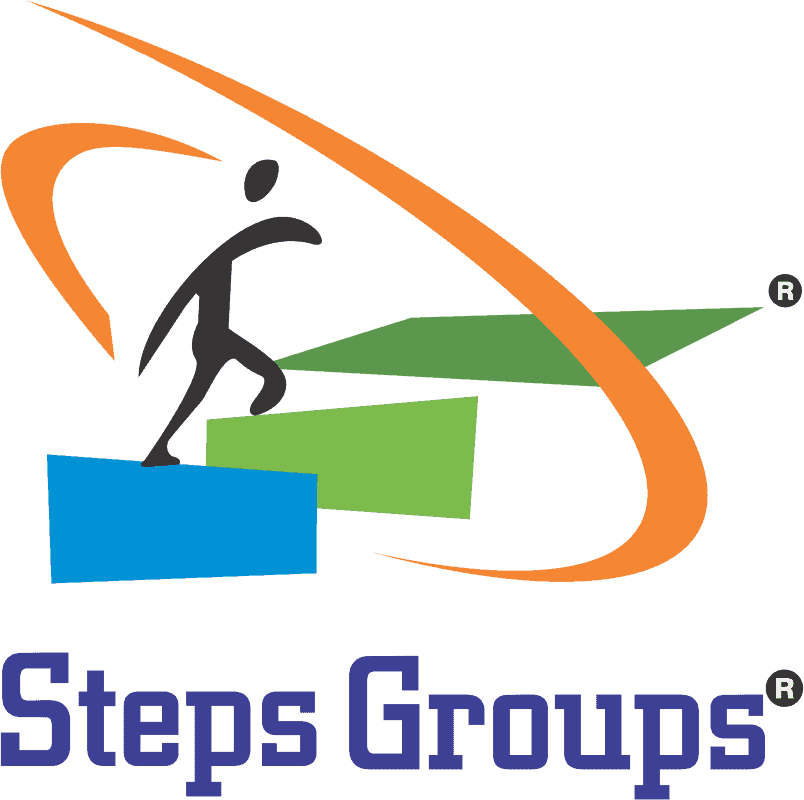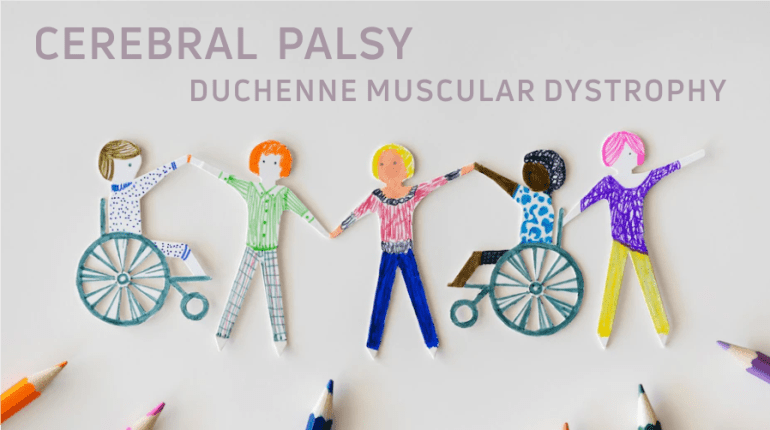Cerebral Palsy & Duchenne Muscular Dystrophy
Cerebral Palsy & Duchenne Muscular Dystrophy Treatment in Coimbatore
At Steps Groups, we provide specialized therapy and rehabilitation for Cerebral Palsy and Duchenne Muscular Dystrophy in Coimbatore. Our evidence-based, multidisciplinary approach focuses on improving mobility, strength, coordination, and daily living skills — empowering children to lead active, confident, and independent lives.
Understanding Cerebral Palsy
Cerebral Palsy (CP) is a group of neurological disorders that affect movement, posture, and muscle coordination. It is the most common motor disability in childhood and occurs due to abnormal brain development or damage to the developing brain that affects muscle control.
The severity and symptoms vary widely — while some children can walk independently, others may require assistive devices or full-time support. With early and consistent occupational therapy, children with CP can achieve remarkable progress in mobility and functional independence.
Common Signs and Symptoms
Cerebral Palsy usually becomes apparent in infancy or preschool years. Symptoms may include:
- Muscle stiffness (spasticity) or floppiness
- Unsteady walking or poor balance
- Involuntary or jerky movements
- Delayed motor milestones
- Difficulty swallowing or speaking
- Eye muscle imbalance
- Limited range of motion due to muscle tightness
Causes of Cerebral Palsy
CP can result from factors that affect brain development before, during, or shortly after birth, such as:
- Brain injury or infection during pregnancy
- Premature birth or low birth weight
- Lack of oxygen during delivery
- Genetic mutations affecting brain structure
While there is no cure, therapeutic intervention helps manage symptoms, build functional skills, and enhance independence.
Occupational Therapy for Cerebral Palsy
At Steps Groups, our occupational therapists use personalized, play-based interventions to help children with cerebral palsy improve coordination, motor control, and self-care abilities. Each therapy plan is customized to the child’s needs and goals.
Key Benefits of Occupational Therapy
- Enhances independence in daily routines
- Improves fine and gross motor skills
- Boosts confidence and participation in learning
- Promotes sensory integration and body awareness
Types of Cerebral Palsy and Therapy Focus
1. Spastic Cerebral Palsy:
Characterized by stiff muscles and jerky movements. Therapy focuses on stretching, mobility, and self-care skills such as dressing, feeding, and writing.
2. Athetoid Cerebral Palsy:
Involves involuntary movements and difficulty controlling posture. Therapy targets coordination, grasping, and speech-related motor control.
3. Ataxic Cerebral Palsy:
Associated with balance and coordination problems. Therapy focuses on improving stability, hand control, and precision tasks like drawing or eating.
Therapy Focus Areas
- Fine Motor Control: Strengthening hand muscles through activities like squeezing toys, buttoning, or picking up objects.
- Bilateral Coordination: Exercises that engage both sides of the body, such as drumming or pushing a rolling pin.
- Upper Body Strength: Core and shoulder strengthening through crawling, reaching, and supported play.
- Visual Motor Skills: Hand-eye coordination improvement using puzzles, drawing, or catching games.
- Self-Care Training: Teaching independence in daily activities like brushing teeth, dressing, and feeding.
Duchenne Muscular Dystrophy (DMD)
Duchenne Muscular Dystrophy (DMD) is a genetic muscle-wasting disorder that primarily affects boys. It is caused by the absence of dystrophin, a protein vital for muscle strength. As muscles progressively weaken, mobility and independence can become challenging — but early therapeutic intervention can greatly improve quality of life.
Common Challenges in DMD
Children with DMD may experience:
- Difficulty walking or climbing stairs
- Frequent falls and fatigue
- Reduced muscle strength in legs and arms
- Challenges transferring between furniture or wheelchairs
- Limited accessibility at home or school environments
Therapy and Support for Duchenne Muscular Dystrophy
Our occupational therapy for DMD is designed to maintain function, promote comfort, and support participation in daily life.
1. Mobility Support
We assess and recommend suitable wheelchairs, seating systems, and assistive devices to maintain independence and safety as mobility decreases.
2. Home and Accessibility Modifications
Our paediatric housing occupational therapists help families make their homes more accessible by suggesting ramps, adaptive furniture, grab bars, and layout adjustments for barrier-free movement.
3. Equipment and Safety Aids
We provide guidance on safe use of hoists, slings, and transfer aids, ensuring comfort and safety for both the child and caregivers.
4. Educational Access
We collaborate with schools, colleges, and universities to ensure accessibility, ergonomic classroom setups, and inclusion for students with muscular dystrophy.
Why Choose Steps Groups for Neuromuscular Therapy in Coimbatore?
- Specialized paediatric occupational therapists experienced in CP and DMD
- Individualized therapy programs focused on independence and participation
- Comprehensive support for mobility, home, and education accessibility
- Family and caregiver training for effective at-home care
- Compassionate, evidence-based, and goal-oriented approach
Empowering Every Step of the Journey
At Steps Groups, we believe that every child deserves the chance to live a fulfilling and active life. Through specialized therapy, adaptive strategies, and ongoing support, we help children with Cerebral Palsy and Duchenne Muscular Dystrophy build confidence, strength, and independence.
📞 Contact Steps Groups today to learn more about our Cerebral Palsy and Muscular Dystrophy treatment in Coimbatore or to schedule a personalized assessment.



